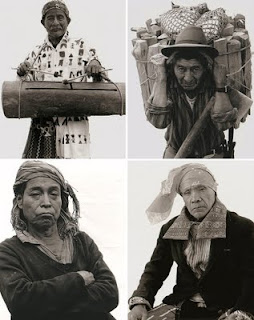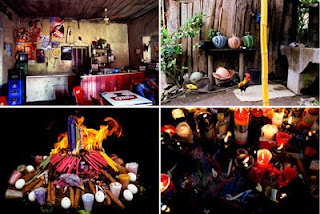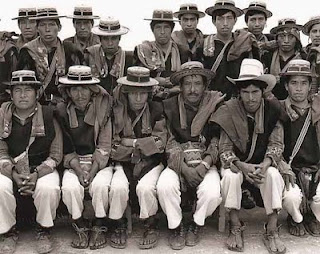After reading the case of Guatemala (part I and II) at once, I can certainly use a drink of rum or maybe a valium. I was recently in Venezuela and reading about chaos, impunity, violence and corruption hit me hard.
I had a vague idea of Guatemala civil war history, but I have to thank our professor for picking this great material, which opened my eyes to what our neighbors in Central America have experienced these past 62 years or so. I found the readings to be thought-provoking, titling and enraging.
These are my appreciations of the entire case.
The “Operation Success” was everything but a “success.” It was the product of extremely secretive CIA arrangement. This invasion, and later civil war, is funded on a basic need that can continue to be attributed to current international issues: land grabbing and national interests.
It saddened me to read in detail how U.S. officials used propaganda to spread rumors and caused so much despair amongst citizens– an unnecessary psychological war. They unfairly accused President Arbenz of leading a communist regime in Guatemala, creating numerous white papers accusing Arbenz of being a communist dictator with complete impunity. I have researched for hours Americans tried for their actions in Guatemala with no results. Why do we have the U.N. and other human rights organizations for? But, if a troubled teenager is found consuming marijuana, he faces jail and a life with a pending criminal record in the U.S.
There was an active communist party in Guatemala by that time (1954), and they held minor positions in the government, but Arbenz never had diplomatic relations with communist powers. The Soviet Union had minimal involvement with Guatemala. There was no communist threat, but Eisenhower believed the opposite in the most obsessive way possible. I will never fully understand what sort of insanity the U.S. experienced during the Cold War era. Their current diplomatic situation around the world is widely tied to this red fear madness.
As a journalist, I was disgusted with the role media played during the U.S invasion of Guatemala and the consequent civil war. In my opinion, U.S. journalists and reporters were key players in overthrowing Arbenz. They wrote very compelling stories that described Castillo Armas as the “Liberator” (without really knowing who this guy was—basic journalism rules broken over and over).
The New York Times and Life Magazine (among others) mimicked Eisenhower’s false claims and featured them constantly in mainstream media. I found an article from the NYT titiled: “How Communists Won Control of Guatemala,” (NYT, March 1, 1953). So, while the U.S. was actively planning aggression against Guatemala, journalists were likely just paraphrasing press releases and doing NO real investigative journalism.
The internal conflict in Guatemala greatly affected the rural areas, which continue to be neglected and marginalized after so many years. Now after so many years, have we learned from genocides and invasions as an international community? Not really. I find the invasion to Iraq to be very similar to the case of Guatemala. I see no progress since 1954.
A note on human rights, Eisenhower’ tried to press the OAS in Caracas, Venezuela in April 1954 with an agenda of “Intervention of International Communism in the American Republics.” Let’s revisit history. By that time, most members were reluctant to participate because Venezuela was hosting the event. Venezuelan leader by that time was Perez Jiminez, likely the most brutal dictator Latin America have seen (along Trujillo who really was the devil). The meeting was held among U.S.-beloved dictators from the Dominican Republic, Nicaragua, Cuba, and Venezuela with Costa Rica absent, for example.
A personal note: Perez Jimenez packed jails with political prisoners, including my grandfather who was tortured in prison for supporting the opposition (later, my uncle Wolfang Larrazabal ousted Perez Jimenez, restored democracy and became the president). So, where is justice when a brutal dictator like Perez Jiminez is highly regarded by the U.S and hosts such an important meeting which sort of sealed Guatemala’s destiny?
The UN was disregarded (as usual) before the invasion. According to preamble and article 1, 1 of the UN Charter, the UN was created to prevent “the scourge of war” by “effective collaborative measures for the prevention and removal of threats to peace.” The UN Charter condemns unilateral attacks across borders not justified by self-defense. Have Americans been tried for their actions in Guatemala? Nope. So, what is the point of having a Charter that can never be implemented or followed? (I need some rum now).
I identified so many violations of human rights in this case study that I can write a book and develop a drinking problem. The fact that villages were militarized by a system of civil defense patrols, recruiting around 900,000 patrollers, including men over sixteen years of age, has to be penalized. Not only these actions polarized society (neighbors against neighbors), but also relied on illegal child soldiers!! The army had excessive control over the land. Refugees in neighboring nations, when trying to return home, were subject to brutal interrogation and detention. The rights of refugees to free association, to life and to personal integrity were greatly violated.
The genocide against the indigenous Mayan population between 1960 and 1996 reached The Hague and this year (after so long) finally some justice has been palpable with the conviction of the first former soldiers for human-rights abuses.
In the case of the village Dos Erres, four former Guatemalan soldiers (or Kaibiles) were sentenced to life in prison for the massacre of more than 200 people during the country’s civil conflict in 1982 (Daniel Martinez, Manuel Pop Sun, Reyes Collin Gualip and Carlos Carias). Also this year, general Hector Mario Lopez Fuentes was convicted for of participating in genocide and crimes against humanity during the military government of Efrain Rios Montt. Thus, Col Sanchez was found guilty this year of being responsible for the forced disappearance of eight farm workers.
At least some Guatemalan criminals are paying for their crimes, but I think Is time to try American soldiers for their human rights violations in Guatemala. I am curious about any settlements between Guatemala and Spain for the atrocities committed at the embassy during the tense times.
PS: the three sisters did look like witches! Ha-ha










